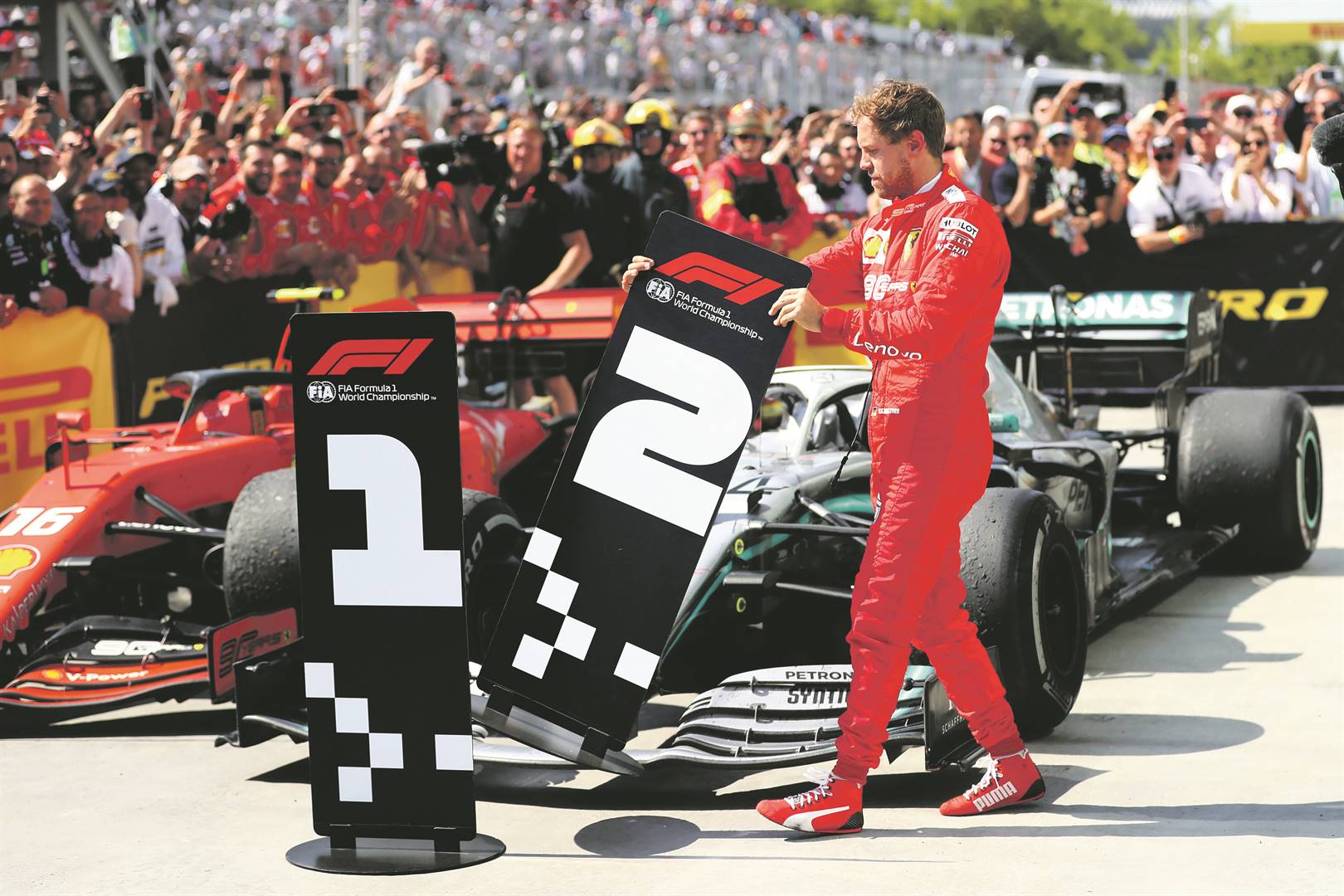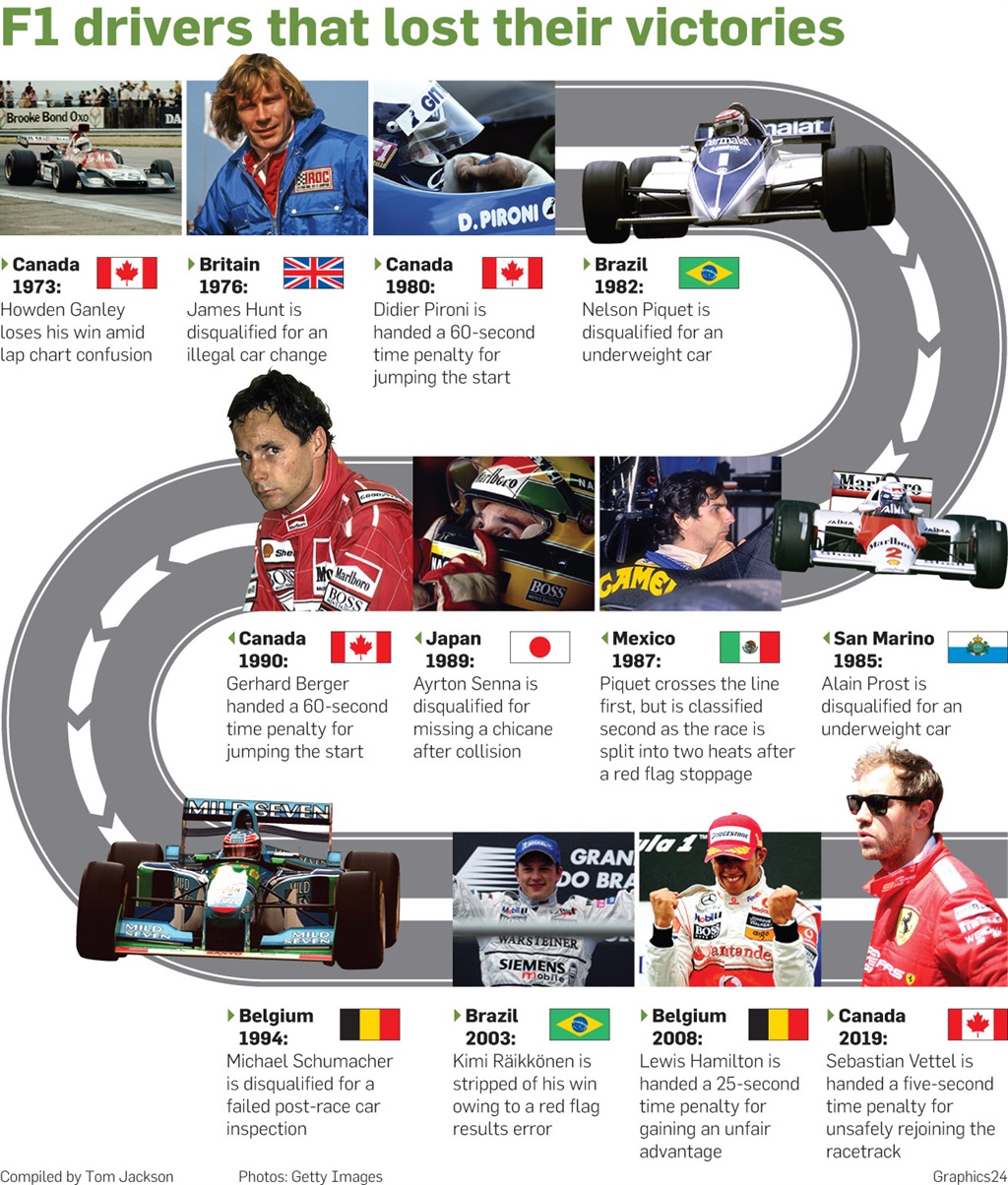
In typical Formula One fashion, the sport has managed to embroil itself in yet another controversy.
Within the space of one corner, last weekend’s Canadian Grand Prix, a race that had been building up to a tantalising crescendo and promised a spectacular battle for victory, had been reduced to a farce, prompting disbelief and anger from its drivers, commentators and fans alike.
Sebastian Vettel received a five-second time penalty after stewards ruled that he had returned to the track in an unsafe manner, forcing rival Lewis Hamilton to take evasive action. The time penalty gave Hamilton the victory, even though the German crossed the finish line first, prompting Vettel to say he had been robbed.
“No, no, I am not satisfied. Where in hell was I supposed to have gone? That is not fair. They have to be blind to make such a decision. I don’t understand the world. They are stealing the race from us,” he said.
The race stewards’ questionable decision created an astonishing chain of events, witnessed live by millions around the globe. Vettel stormed off to the Ferrari hospitality suite instead of parking his car in the prescribed place, then later swapped the first and second marker boards by Hamilton’s car.
For a sport that needs all the positive publicity it can get amid falling viewing figures, rising costs and five years of predictable results, last week’s issue was not a mess that F1 can afford to bear in its current state.
Immediate parallels were drawn to similar incidents at the Monaco Grand Prix in 2016, in which Hamilton was cleared of dangerously rejoining the circuit ahead of Daniel Ricciardo, and last year’s Japanese Grand Prix, where Max Verstappen came back on track but forced Kimi Räikkönen to take evasive action. Verstappen was handed a five-second penalty, setting the precedent for the punishment Vettel received.
Each time an issue like this crops up, it calls into question the regulations F1 adheres to, and whether they’re fit for purpose and consistent across different situations. A driver losing the race win is a bizarre scenario that F1 has found itself in 11 times before, the last being in Belgium in 2008. A young Hamilton missed out on a victory that day when he received a 25-second time penalty after allegedly cutting the final corner, dropping him to third. McLaren appealed that result, but failed to have it overturned, with the International Automobile Federation citing that the type of penalty issued could not be revoked.
There are four types of penalties that stewards have at their disposal during a race – the five- and 10-second penalties, a drive-through penalty – in which drivers must make their way through the pit lane – and a stop-and-go penalty, where they must stop in their pit box.
The five-second penalty Vettel received was the most lenient. Usually for penalties issued post-race, teams appeal the result and it’s then forwarded to the federation’s international court of appeal for final deliberations based on evidence supplied by both parties.
However, the federation’s rulebook stipulates that penalties issued during the race cannot be appealed because of the way they have an immediate and direct impact on events that occur in the grand prix.
Ferrari has said it intends to appeal. In doing so, the team is essentially using a loophole to appeal against the decision to penalise its driver and not the penalty itself, provided that it has new evidence to submit that supports the case that Vettel was unable to avoid the incident.
Depending on what the court decides, Ferrari is well within its rights to take matters to the Court of Arbitration for Sport. But doing so takes time and resources away from a team desperately playing catch-up in the championship.
Grand Prix Drivers’ Association chairperson and former F1 driver Alexander Wurz suggests that the sport’s watertight, letter-of-the-law approach to how it conducts its business is the reason it found itself in a mess in Canada.
F1 managing director of motorsports Ross Brawn said he agreed with the decision to penalise Vettel, but admitted that the sport needed to find a better way to manage these kinds of incidents.
“There is nothing sinister about a decision like this. You might agree with it or not, but none of those who take on the role of steward each weekend have a hidden agenda. Fans can be certain of that,” he told journalists.
“At the same time, I understand how difficult it must be for fans to understand why the driver on the top step of the podium is not the one who crossed the finish line first. That’s why transparency is important when it comes to explaining the decisions of the stewards, especially in such a complex sport as the F1.”
As a result of last weekend’s drama, those in the F1 paddock suggest changes should come through more consistency in the officials’ decision-making, and there should be better transparency in communicating those decisions to the fans of the sport.




 Publications
Publications
 Partners
Partners









